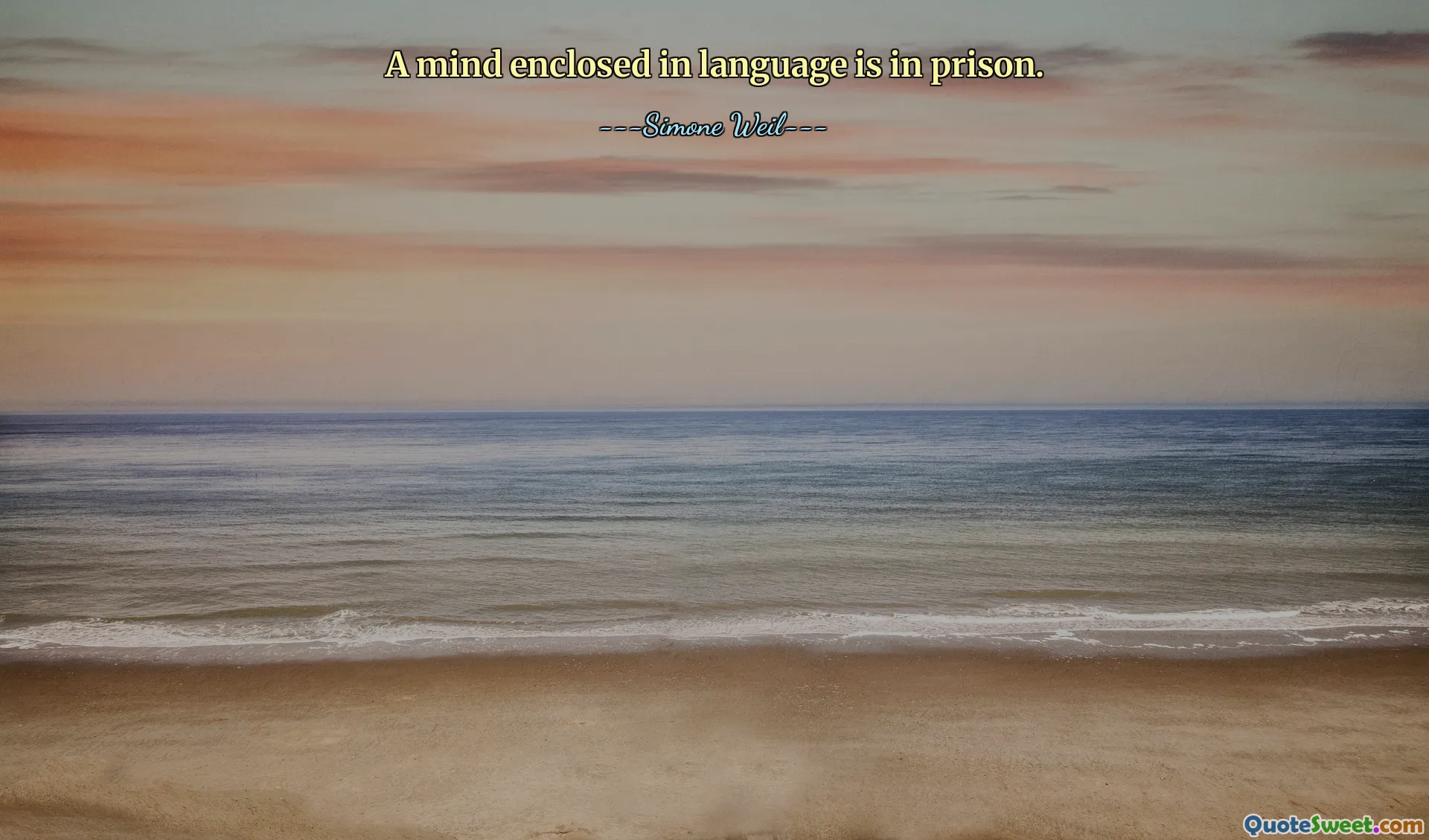
A mind enclosed in language is in prison.
This quote invites us to ponder the profound relationship between language and thought. Language is often regarded as the primary tool through which we understand and navigate the world around us. However, it can also act as a boundary, constraining our cognitive freedom. When our thoughts are confined within the limitations of language, we might fail to grasp concepts that transcend words or experience realities that are difficult to articulate. The notion suggests that relying solely on language may inadvertently imprison our minds, restricting innovation, intuition, and true understanding.
Throughout history, many thinkers have recognized that language influences perception, sometimes shaping it in ways that limit our perspective. For instance, poetic and artistic expressions often seek to evoke feelings and ideas beyond what literal language can capture. Conversely, strict language structures, such as philosophical or scientific terminologies, can box in our thinking, making it difficult to think outside established frameworks. Recognizing this tension encourages us to pursue direct experience, intuition, and non-verbal forms of understanding to complement verbal reasoning.
Moreover, in daily communication, the attempt to precisely define ideas may lead to oversimplification, losing the richness of the original thought. This quote reminds us to be aware of the limitations of language and to remain open to that which lies beyond words. By doing so, we embrace a more holistic approach to knowledge—one that values silence, intuition, and experiential learning alongside verbal expression. Ultimately, freeing the mind from the prison of language allows for deeper insight, creativity, and a more authentic engagement with reality.











